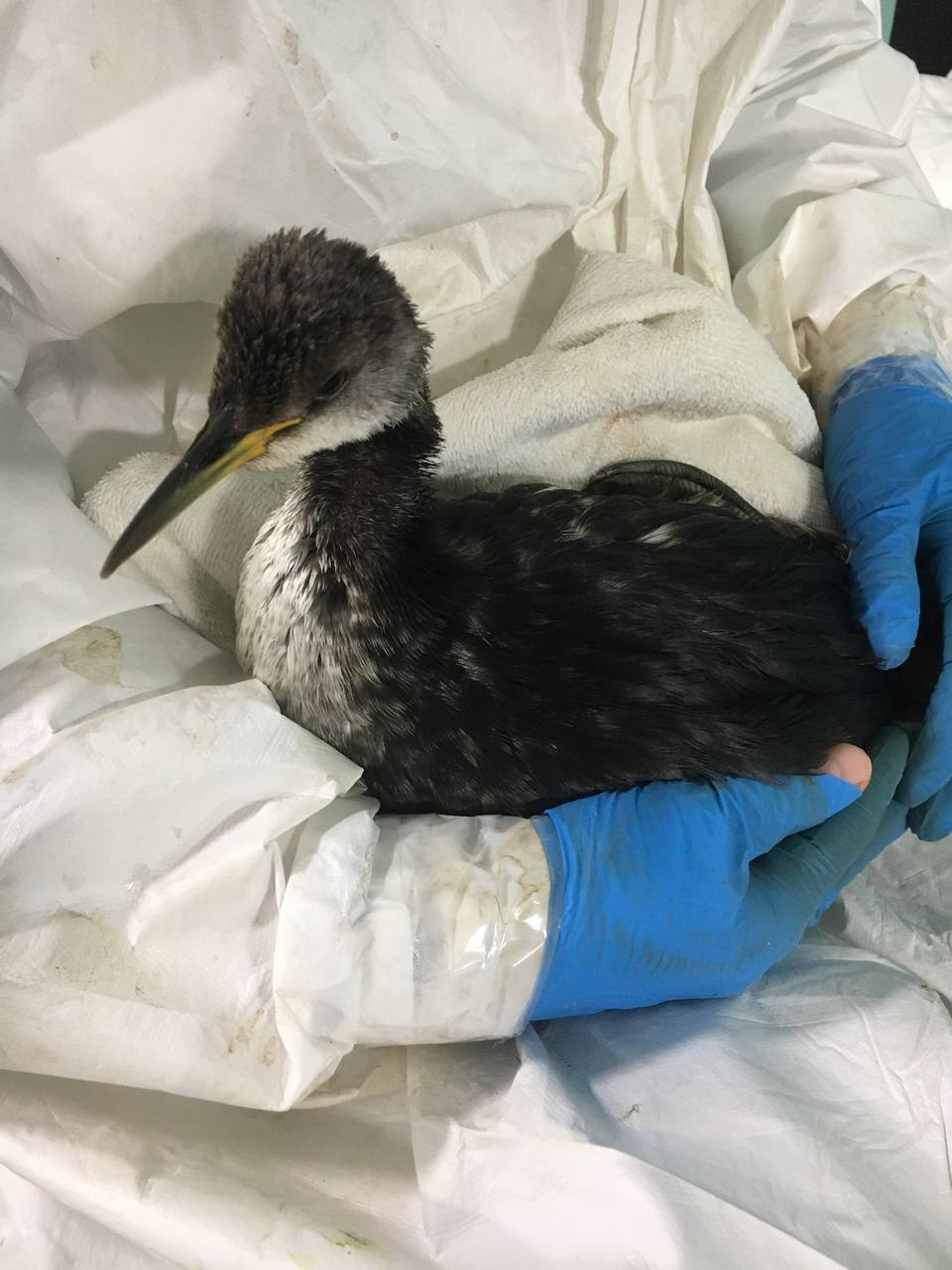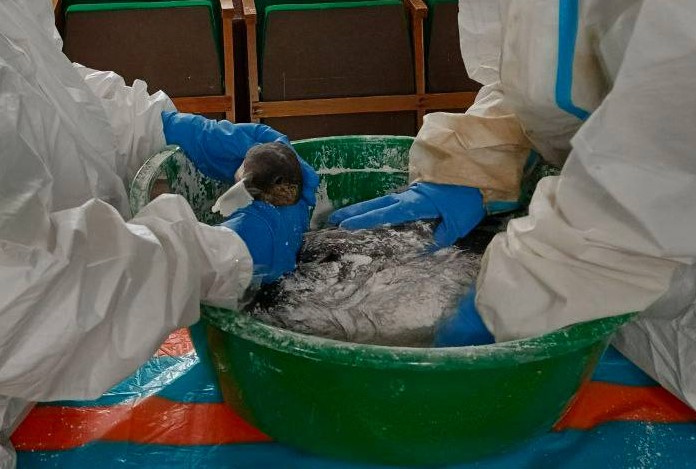Environmental disaster in Crimea: Birds rescued from oil were transported to Russia, but half of them died during the journey.
From the temporarily occupied Crimea, waterfowl affected by oil were likely transported to the Russian Federation, but half of the birds died during the journey. Meanwhile, according to volunteers from Alushta, about 40 individuals die each day at the headquarters where the birds are being rescued.
This information was provided to ZMINA by Crimean volunteers engaged in rescuing the affected birds.
According to official information, birds that need rehabilitation after being cleaned of oil are sent to the Lion Park “Taigan,” which is supposed to receive compensation from the Russian authorities for this. At the same time, volunteers from the local bird rescue headquarters in Alushta reported that not all rescued birds could be accommodated in occupied Crimea. Some of the birds were transported to Moscow and other cities in Russia, but about half of these birds died during transportation.
Local volunteers continue to capture birds (mostly red-listed divers), but as the temperature along the coast is currently below freezing, many birds are also dying from hypothermia.
“Because when birds have dirty feathers, covered in oil, they allow moisture in and lose buoyancy, which causes them to freeze,” says one of the volunteers, who has been daily rescuing birds for a month, sometimes spending up to 11 hours at the headquarters.
According to her, about 40 dead birds may accumulate here in a single day. Some die after being cleaned of oil. Additionally, sometimes dead birds found along the coast are brought to the headquarters.
“There are a lot of birds… they are caught at night when they come out of the water… Fish, dolphins, and birds that now eat poisoned fish are dying,” the volunteers say.
According to their data, half of the birds brought to the headquarters and cleaned of oil have died.
Among environmental volunteers, there are predictions that the restoration of the marine ecosystem in the polluted area will take about ten years.

Crimean volunteers report that three people work to clean a single bird, and they spend more than an hour washing the feathered creature.
First, they clean the bird's beak, then they rub starch into the feathers to absorb the oil – this is quite a lengthy process, one of the volunteers clarifies.
“The birds are experiencing severe intoxication, so they are given 'Polysorb' every two hours,” the woman adds.
Then, the birds' feathers are washed with a fat-soluble detergent, such as “Fairy.”
“After the oil is washed off the feathers, the bird cannot be released until the feathers molt, because the protective fat is washed away and the bird loses buoyancy and cannot keep warm. They need to be kept somewhere until spring. And there is only one large zoo in Yalta for all of Crimea, which has taken on as much as it can,” notes a source who spoke with ZMINA.
In spring, when migration begins, the number of oil-affected birds is expected to increase significantly, according to the volunteers. They also add that the number of people willing to catch and clean birds has significantly decreased compared to last month.

The acute shortage of volunteers engaged in bird rescue in occupied Crimea is also reported by writes “Crimea. Realities,” referencing a Crimean animal rights activist and participant in the bird rescue volunteer movement in Crimea.
According to her information, the problem of volunteer shortages is becoming increasingly critical every day. The animal rights activist, speaking anonymously, stated that the situation is particularly dire at the rehabilitation center in the Lion Park “Taigan,” where volunteers cannot endure the unheated working, resting, and living conditions, forcing many to leave after just a few days of work in freezing weather.
Another reason cited by the animal rights activist is the fatigue of “dedicated” volunteers, while those who could step in for them would like to receive daily allowances and reimbursement for travel. However, she notes that the Russian authorities continue to ignore this issue, and in such a situation, there will soon be no one left to rescue the affected birds.
Recall that in December 2024, due to bad weather in the Kerch Strait, the tanker “Volgoneft-212,” which was carrying about 4,300 tons of oil, and the tanker “Volgoneft-239” with over 4,000 tons of oil on board, met with disaster.
Videos were posted online showing one of the vessels breaking apart after being hit by a wave.
The Russian authorities should be held accountable for this massive environmental disaster, which has reportedly caused ecological damage exceeding 14 billion dollars.